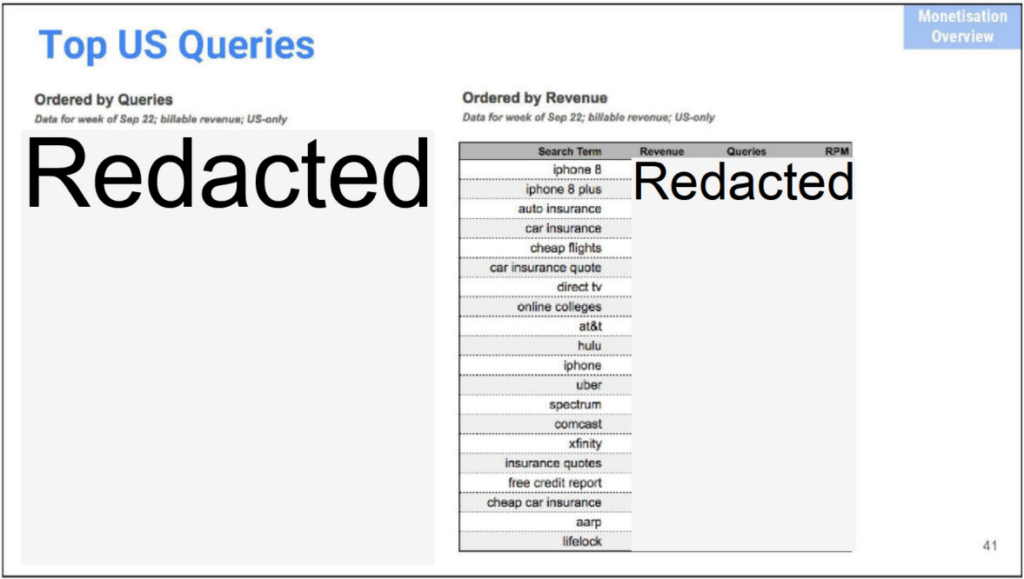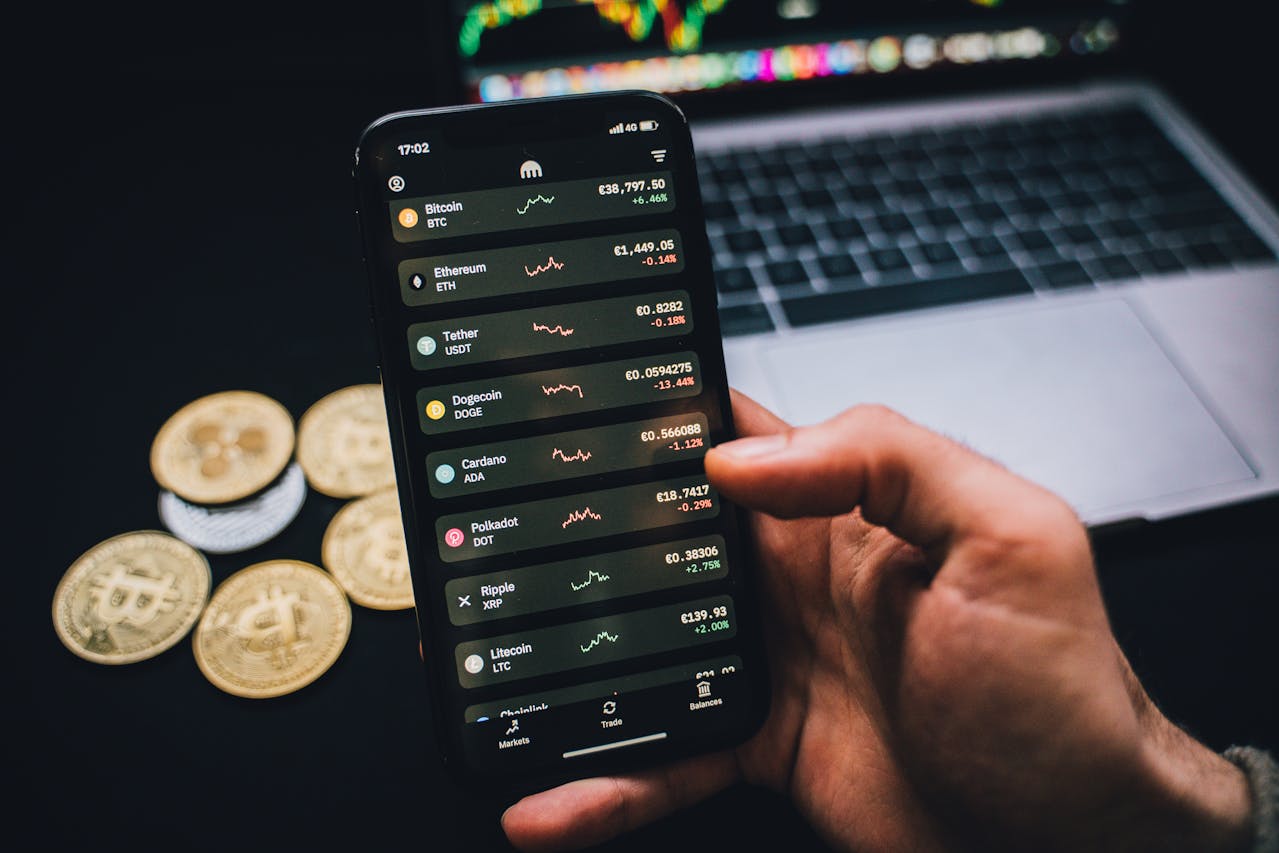Business
The TopRanked.io Weekly Digest: What’s Hot in Affiliate Marketing [+ Nifty Affiliates Review]
Imagine you could turn back time and help SBF not make a mess of FTX, and the only rule was that you had to make money while doing it. What would you do? This week, we give you one possible answer (the Nifty affiliate program) and also take a look at some other money-making news. We’ll also answer the question on everyone’s lips — why is Grandpa Gates an inspiration for affiliate marketers?

Quick Disclosure: We’re about to tell you how Nifty run a top-notch affiliate program. And we really mean it. Just know that if you click on a Nifty link, we may earn a small commission. Your choice.
Today, it became official. Things won’t be right for SBF after he was convicted on all seven charges.
Now, just in case you’ve been living under a rock and have no idea what’s going on here, here’s the whole story in just one meme.
Now, whether you think SBF deserves the bad rap or not, one thing did become clear throughout the trial.
Alleged fraud aside, there were a lot of bad management practices.
You know, kinda like how they ran the whole show with a “hodgepodge of Google documents, Slack communications, shared drives, and Excel spreadsheets and other non-enterprise solutions.” (source)
Maybe they just had better things to do…
So, let’s play a hypothetical situation for a moment.
Imagine we wound back the clock to when FTX was just beginning. And you, the affiliate marketer, can help out SBF (and make a pretty penny while doing so).
What would you do?
TopRanked.io Affiliate Program of the Week
While I won’t pretend to know every piece of software SBF should have used to run his company, I can tell you that I know of a pretty great project management tool that could have helped.
It’s called Nifty, and it also has a pretty good affiliate program, too.
Here’s what you need to know.

Nifty Affiliate Program, According to Nifty
Usually, we open these affiliate program of the week bits with a short rundown of the product. But, seeing as we’ve already tipped off that Nifty is a project management tool, I figured we’d skip the product intro and get straight to the Nifty affiliate program.
And what better way to introduce the Nifty affiliate program than with a little “how it works” (according to Nifty)?
Here’s how Nifty spells it out:
- Step 1 — Sign Up: Sign up to Nifty with your email address.
- Step 2 — Share Nifty: Create and share your Nifty referral links.
- Step 3 — Earn Commissions: Earn recurring revenue for every customer referred.
- Step 4 — Easy Payout: Withdraw your Nifty commissions right from your dashboard.

Nifty Affiliate Program, According to TopRanked
First, let’s get the bad news out of the way.
While Nifty might claim you only need your email address to sign up, that part doesn’t seem 100% correct. When you click through to the Nifty signup form, you’ll also need to tell Nifty your name, and create a password.

The good news is, that’s where the bad news ends. Once you fill in that form, you’ll get taken straight to your very own affiliate dashboard (with a ready-made link so you can get started promoting Nifty right away).
No silly “how do you plan to promote Nifty?” questions.
No email verifications.
No nothing.
Just 100%, straight-to-the-point.
Just how we like it.
PS: At some point, you will have to take the time to provide payment details to Nifty if you want to get paid.

Nifty Affiliate Program, According to the Numbers
So, now we know how the Nifty affiliate program works, let’s get to the commissions. Fortunately, these are like the rest of the Nifty affiliate program — simple, and to the point.
Basically, as a new affiliate, you get 30% on everything.
First month commissions — Nifty pays 30%.
Recurring commissions — Nifty pays 30%.
See, I told you Nifty was simple and to the point.
As for what you’ll be getting 30% commission on — Nifty plans range from $5-16 per user, per month.
Nifty Affiliate Program — A Few Final Details
As with any program we put up as an affiliate program of the week, Nifty pays out promptly (PayPal only, $20 minimum) and is well supported.
As for how you can get started — simply head here to sign up with Nifty.

Affiliate News Takeaways
Google vs US — Here’s What You Need to Know
Right now, Google and the U.S. Justice Department are locked in an antitrust battle, with allegations that Google unlawfully abused its dominance to maintain its monopoly on search.
For those who are completely out of the loop on this one, Reuters has a good explainer here. And for those in too much of a rush for that, here’s our explainer for the explainer:
- U.S. gov. says Google is stifling competition through deals that make its search engine the default on most phones and browsers.
- Google claims these deals are just legitimate competition and do not prevent competitors from making similar deals.
- However, with a 90% share of the search market, Google’s market dominance makes this competition tough.
- As an example, Google’s deal with Mozilla (Firefox) sees the search giant cough up close to half a billion dollars a year — a figure that only a dominant market player could match.
- The trial will last about 10 weeks, and a ruling is expected in early 2024.
Now, as for why this of any interest to us… well, it’s not.
But, as is usually the case with high-profile cases like this, there’s the odd bit of juicy information that gets leaked.
Case in point — check out this exhibit.
Scroll down to page four, and you’ll land on this slide:

Now, sadly most of it has been redacted. But, we do still get a list of Google’s 20 most profitable keywords (for 2018).
- iphone 8
- iphone 8 plus
- auto insurance
- car insurance
- cheap flights
- car insurance quotes
- direct tv
- online colleges
- at&t
- hulu
- iphone
- uber
- spectrum
- comcast
- xfinity
- insurance quotes
- free credit report
- cheap car insurance
- aarp
- lifelock
Now, a lot of this list shouldn’t come as a surprise. Insurance-related keywords have long been some of the most expensive. And iPhone-related keywords has long been some of the most popular.
But it is at least a small grab bag of words that are confirmed to be valuable from a KW-cost x KW-volume perspective.
As for another interesting exhibit, here’s an extract from an “Email from Vint Cerf (Google) to Benedict Gomes (Google), Re: bing vs google (Dec. 17, 2018)”:

Now, again, there aren’t any huge surprises here. The whole “freshness is a ranking factor” debate has been doing the rounds in SEO circles for years now.
What may come as a surprise for some is that internal Google discussions seem to show that the popular theory — that is, that only time-sensitive queries (e.g., news, trends, etc.) use freshness as a ranking factor — is not 100% accurate.
Of course, this email is from way back in 2018, so it’s possible the problems Google staffers were discussing are no longer relevant.
However, as outdated as it is, it’s also no more outdated than most of the SEO advice you’ll find floating around out there.
For example, here’s the popular “Google’s 200 Ranking Factors: The Complete List (2023)” article anyone with half an interest in SEO has probably seen before.
That was “last updated Sep. 22, 2023”, and it claims Google “recently denied” the publishing frequency theory. However, that “recent” denial is in reference to a Tweet from 2018.
Takeaway
There’s probably nothing too surprising here. However, with a large number of SEO theories largely resting on scant pieces of evidence and urban legend, every little scrap of “official” information helps.
The full list of filings is here for anyone who wants to go fish through them.
Once you glean something useful, why not test it out with a Nifty campaign?

Here’s One of Our Hair-Brained Ideas in Practice
A lot of the time when we drop a news item around here, we’ll also throw out an idea or two about how to use it to market stuff.
For example, back when X (then Twitter) announced “Community Notes”, we covered it in our weekly affiliate marketing digest.
The abridged version of our “money making” theory on that announcement was this:
“This looks promising if you can worm your way into it… what better place to drop… a link [than when fact-checking someone else’s tweet]?”
Well, now the feature has been out for a few months, we’re starting to see some examples of the play in the wild.
For example, here’s a post that’s been doing the viral rounds on X this past week, along with a clue about what started happening with this post re: Community Notes:
Now, here’s how this particular “play” works.
- Step 1: Create content that will cause outrage. In this instance, it’s a young female saying she doesn’t need to cook — instead, she can order UberEats for her man while… bobbing her head…
- Step 2: Post that content using a sock puppet account along with an outraged caption like “This generation is cooked.”
- Step 3: With another sock puppet account, start “fact-checking” the outrage-inducing post. In this case, the “fact-checking” was in the form of a community note that said, “The girl getting interviewed is an OnlyFans model and this is an undisclosed ad which is illegal.”
- Step 4: In the community note, you’ll need to include a link as “proof”. In this case, the link pointed straight to the model’s X account, which itself linked to her OnlyFans account.
And that, dear readers, is how you use Community Notes to start directing some clicks to your advantage.
Now, unfortunately for the people behind this particular ploy, they were a little too transparent and their community note was quickly removed.
Takeaway
There are a couple of takeaways here.
First, if you’re not paying attention when you read our affiliate marketing digest, then shame on you. While some of what’s written here is a little on the hair-brained theory side of things, sometimes it plays out quite nicely in practice.
Second, if you were looking for a concrete example of how to execute the link-in-a-Community-Note playbook, you just got one.
Now figure out a way to tie a Nifty promo into a fact-checking Community Note to go make bank.

Cashing in On News
For a number of years now, Facebook, Twitter, and other platforms have sort of become the de facto standard newsstand for a lot of people.
But, if you speak to anyone who’s been doing this for a number of years now, it’s pretty common to hear that things are degrading.
Of course, the most vocal of these voices have been from the anti-Musk-era-Twitter crowd. But these complaints tend to be focused on the old left/right censorship thing rather than anything more… concrete.

However, step back from the “liberal bias”/“marginalized voices”/etc. noise a little, and a fairly common complaint seems to be around the degradation/deemphasis of news more so than the political leanings of the news.
Some of these changes are more visible than others, like Facebook News disappearing, or X removing headlines from news links.
And others have been more… shall we say subtle, like the de-emphasis of news in algorithms on platforms like Facebook.
And then there have been the headline-grabbing industry upheavals, like Bill C-18 in Canada, which has resulted in Google deciding to boot Canadian publishers from its news results.
Basically, the world where big tech platforms functioned as our newsstands is slowly coming to an end. Or, at least, it’s decelerating rapidly.
As for the reasons for this, they are multiple.
Sometimes, they are obvious — Google left nothing to the imagination in it public statement as to why it’s ditching Canadian news.
And, sometimes they surface in tidbits and quotes scattered around the place, like in reports about Instagram head Adam Mosseri saying that news is “more trouble than it is worth because it generates polarized debates.”
And this seems to be the prevailing sentiment on the latest Meta platform, Threads.
Post by @mosseriView on Threads
Essentially, to quote the same NYT article from above, “the major online platforms are breaking up with news.”
Takeaway
There are a couple of takeaways here.
The first takeaway is one that you might have already noticed if it applies to you. That is, if you are currently using social media as a traffic source for news content (and you haven’t already experienced a drop-off in traffic), the golden days may be over.
The second takeaway is that there are probably several dozen opportunities here to build an audience around newsy content.
Now, what this means in practice could mean a thousand things.
It could mean publishing a bunch of “Canadian” news in the wake of Bill C-18 in an attempt to grab some previously hard-to-rank-for searches. (Psst… Canadians like imaginary sports like curling.)
It could mean following @mosseri’s lead — “People can share news; people can follow accounts that share news.” — to build a following. (Just because Big Tech is de-emphasizing news publishers, doesn’t mean “regular people” can’t share and discuss news.)
Or, it could mean building a niche audience around an industry where people are feeling the impact from the de-emphasis of news, and posting relevant news takes.
However you go about it, though, there’s one thing that you should absolutely take advantage of here — AI. There’s no need for you to turn into a journalist here. If you can scrape a bunch of news sources, summarize it, and find a way to get it in front of people, there’s a good chance you could make a few easy wins.
As for how you monetize your news audience, that will depend on a lot of factors.
One example would be promoting Nifty to, let’s say, a tech news crowd. Chances are, there’d be more than a couple of readers running their own startups and on the lookout for just such a product.

Closing Thought
If you’ve been following the Google vs U.S. case we covered earlier, you’re probably familiar with the “similarities” people are drawing with the Microsoft case from the 90s.
I know I’ve seen a few. And every time I see them, it gets me thinking about Bill Gates.
Now, I know the natural train of thought here would be to draw some conclusions about his secrets to attaining great wealth.
And I’m sure there would be a lot of value in that — he’s obviously done something right.

Instead, I want to talk about the remarkable turnaround in the public’s perception of him.
You see, back in the 90s, Bill wasn’t liked by many people. In fact, he was pretty much the most hated businessman of the decade.
If you’re old enough, you might remember this.

But somehow, as the naughties progressed, little Billy Boy started to grow into a much-loved public figure.
Now, admittedly, some people are starting to question just how much love everyone’s favorite billionaire actually deserves.

But even so, the turnaround is undeniable.
So, what’s the takeaway?
Is it that you should worry about negative public opinion and become a philanthropist to prove everyone wrong?
Not quite.
The point here isn’t even about the specifics — a well-executed, against-all-odds PR campaign to turn the world’s most hated businessman into the world’s most loved billionaire.
Instead, the point is about providing a concrete example of an abstract concept.
You see, if you ingest much motivational content, you’ve probably run across inspirational quotes like this.

And while this sort of content is all well and good, it kinda loses its punch once you realize that 90% of the time, it’s just empty, feel-good words.
But the Bill Gates story stands as proof that, no matter how much the odds might seem stacked against you, there’s always a way to turn the impossible into the possible.
And that marketing is the best way to do it. (Okay, I get it — marketing and PR aren’t quite the same thing… but there’s a lot of overlap.)
So, go forth my fellow affiliates. If marketing could turn Billy Boy’s impossible dream of becoming the world’s most-loved billionaire into a reality, then it can turn your dreams of making mega bucks promoting Nifty into a reality, too.

__
(Featured image by SevenStorm JUHASZIMRUS via Pexels)
DISCLAIMER: This article was written by a third party contributor and does not reflect the opinion of Born2Invest, its management, staff or its associates. Please review our disclaimer for more information.
This article may include forward-looking statements. These forward-looking statements generally are identified by the words “believe,” “project,” “estimate,” “become,” “plan,” “will,” and similar expressions, including with regards to potential earnings in the Empire Flippers affiliate program. These forward-looking statements involve known and unknown risks as well as uncertainties, including those discussed in the following cautionary statements and elsewhere in this article and on this site. Although the Company may believe that its expectations are based on reasonable assumptions, the actual results that the Company may achieve may differ materially from any forward-looking statements, which reflect the opinions of the management of the Company only as of the date hereof. Additionally, please make sure to read these important disclosures.

-

 Business2 weeks ago
Business2 weeks agoLegal Process for Dividing Real Estate Inheritance
-

 Fintech12 hours ago
Fintech12 hours agoJPMorgan’s Data Fees Shake Fintech: PayPal Takes a Hit
-

 Fintech1 week ago
Fintech1 week agoPUMP ICO Raises Eyebrows: Cash Grab or Meme Coin Meltdown?
-

 Africa3 days ago
Africa3 days agoSurging Expenditures Widen Morocco’s Budget Deficit Despite Revenue Growth












